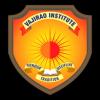How to Prepare for the UPSC Civil Services Examination?

Prelims, Mains, and the Interview are the three key phases of the demanding UPSC exam. To choose the most qualified applicants for civil service jobs each step is essential. However, you can successfully traverse this difficult journey if you have the appropriate tactics and direction. This article dissects the UPSC test format and offers helpful advice to help you improve your study methods, stay motivated during your preparation, and prepare efficiently. Vajirao and Reddy IAS Institute (Vajirao IAS Academy) explores each stage in detail.
Summary of the Interview, Mains, and Prelims
General Studies Paper I and CSAT are the two objective-style papers that make up the preliminary exam. The purpose of these tests is to evaluate your skills and knowledge. Nine descriptive papers that test your in-depth knowledge in a variety of subjects are part of the Mains exam. Lastly, the interview phase assesses your character and fit for a civil service position.
The Significance of Each Phase of the Exam
Every UPSC exam step has a specific purpose. The UPSC Prelims exam serves as a test to weed out unworthy applicants. The Mains test assesses your depth of knowledge and analytical abilities. Finally, the interview evaluates your communication abilities and personality. Thus, mastering each step is vital for overall success in the UPSC exam.
Typical Obstacles Aspirants Face
Many candidates face obstacles like:
Time management: striking a balance between personal and study time.
Large syllabus: It can be difficult to comprehend and go over the vast syllabus.
Exam stress: Controlling tension and worry while preparing.
Your chances of success can be greatly increased by successfully addressing these obstacles.
Study Techniques That Work for UPSC Preparation
Master UPSC preparation with proven study techniques like time management, mock tests, and revision. Here, Vajirao IAS Academy provides expert guidance and a clear path to success:
Making a Practical Study Schedule
Success on the UPSC exam requires a well-organized study schedule. Set aside at least 6 to 8 hours every day for concentrated study time. Divide your study time into reasonable chunks and concentrate on various topics according to your strengths and their relative importance. To monitor your progress, use apps or planners.
Making Use of High-Quality Resources
Utilizing the appropriate resources is essential for efficient preparation. For a strong foundation in subjects like geography, history, and ethics start with NCERT textbooks. Add recommended literature and current affairs publications, such as Yojana and Kurukshetra, to your studies. This combination will improve your understanding of difficult subjects.
Including Active Learning Strategies
The secret to remembering information is active learning. Practice composing responses every day, concentrating on organization and clarity. Participate in group conversations to gain a deeper comprehension of subjects. Additionally, to assess your knowledge and pinpoint areas for development, take quizzes regularly. Nonetheless, do keep in mind that your health is just as vital as your academic performance. Long-term consequences may result from neglecting it. You can improve your preparation and raise your chances of passing the UPSC exam by implementing these tactics.
UPSC Current Affairs Mastery
Keeping up on current events is crucial for UPSC exam success. One of the most important aspects of studying for the UPSC exam is learning current affairs. Here is how to handle this crucial component of your study schedule:
Staying Updated with Relevant News
You may stay up to date on significant news by reading newspapers like "The Hindu" or "The Indian Express" daily. This practice improves your analytical abilities in addition to keeping you updated. Additionally, monthly publications save you time by compiling important updates and events. They provide you with thorough information by covering government programs, policies, and events on a national and worldwide scale.
Including Current Events in Responses
Linking Current Events to General Studies: It is critical to incorporate current events into your academic preparation for general studies. Writing rich responses with up-to-date examples is aided by this, which is essential for performing well on the Mains test.
Taking Part in Discussion Sessions: Having conversations about current events will help you develop your perspectives and broaden your awareness, which will aid you in the main and during the interview stage.
Gaining an understanding of current events not only improves your knowledge of general studies but also prepares you to respond intelligently to questions on the main exam.
Enhancing Answer Writing Skills
It is crucial to constantly practice writing answers if you want to do well on the UPSC Mains exam. Begin by setting aside time every week to write responses to the questions from prior years. This will increase your writing speed and help you become accustomed to the format of the test. The following advice will help your practice be more successful:
- Put a timer on: To mimic exam conditions, practice writing for a predetermined amount of time.
- Go over your responses: Once you write your responses, evaluate them against sample responses to find areas that need work.
Techniques for Evaluation and Feedback
- It is important to get comments on your writing. Here is how to accomplish it:
- Peer Review: Discuss responses with other candidates and give each other helpful criticism.
- Mentoring: Seek advice from mentors who are qualified to assess your writing.
- Self-Assessment: To monitor your development and pinpoint your shortcomings, evaluate your work regularly.
- Organizing Responses Well.
- Your score can be significantly impacted by a well-structured response. Take these actions:
Introduction: Outline your primary themes in a concise introduction.
Body: To arrange your ideas, use bullet points or subheadings. Be sure to answer every aspect of the question.
Conclusion: Provide a compelling conclusion that encapsulates your main points.
Keep in mind that learning how to write answers is a gradual process. The secret to perfecting this art is consistent practice and feedback.
You can improve your ability to write answers and raise your chances of passing the UPSC exam by concentrating on these tactics. To make your answers stand out on the test, remember to create some illustrations for often-asked topics in advance and apply them directly!
The Role of Mentorship in UPSC Preparation
During your UPSC preparation, having a mentor can make all the difference. An experienced mentor who has completed the UPSC process can offer you tailored advice. Vajirao IAS Institute in Delhi can assist you in determining your advantages and disadvantages and provide you with specific guidance on how to get better. You can maintain your motivation and goal focus with the support of a mentor. The mentors and subject matter experts at institutes, like Vajirao IAS, which offer tutoring at Affordable UPSC Coaching Fees, can prove to be of great aid.
Benefits of Group Study
Studying in groups can amplify your preparation. Here are some benefits of group study:
Diverse Views: Through dialogue, acquire new perspectives and a more profound comprehension.
Accountability and Motivation: Maintain accountability and motivation with friends to guarantee steady improvement.
Knowledge Sharing: Share information and resolve questions as a group.
Making Use of Internet Resources for Advice
Online materials are abundant for UPSC candidates in the current digital era. You can connect with mentors and successful candidates through websites and forums provided by Vajirao IAS Academy Delhi. By taking part in the institute's Online Live Classes Courses for IAS, you can get important knowledge and tactics that will improve your readiness. Keep in mind that receiving mentorship is essential to improving your readiness for the UPSC civil services exam. It offers you individualized direction, knowledgeable counsel, and inspiration to help you stay on course. You can improve your chances of success and more skillfully handle the difficulties of UPSC preparation by looking for mentorship.
Preparing for the Interview Stage
One of the most important components of the UPSC Civil Services Examination is the interview, sometimes referred to as the Personality Test. Here are some tips for efficient preparation:
Recognizing the Expectations of the Interview
- The 20–30 minute interview evaluates your analytical abilities, leadership traits, and personality.
- Your written exam results have already been examined by the panel, thus it is not a knowledge test.
- You should anticipate being questioned about your Detailed Application Form (DAF), interests, background, and current events.
Mock Interview Sessions
- You can get more at ease with the interview format by taking part in practice interviews.
- To enhance your responses and body language, ask peers or mentors for comments.
- The more you practice, the more assured you will feel; after all, practice makes perfect.
Developing Communication and Self-Belief Skills
- Effective communication is essential. Develop your ability to communicate simply and convincingly.
- Keep eye contact, be kind, and pay attention to your body language.
- To demonstrate respect for the panel, appear on time and dress appropriately in formal wear.
- Keep in mind that sleep must be prioritized, particularly when preparing for the UPSC interview.
Importance of Mock Tests
An essential component of UPSC preparation is taking mock exams. They evaluate your knowledge and assist you in comprehending the format of the test. Regularly taking part in practice exams can help you perform much better. The following are some advantages of taking practice exams:
Determine Your Strengths and Weaknesses: Mock exams allow you to see your areas of strength and weakness.
Enhance Time Management: Timed practice helps you learn how to efficiently manage your time on the test.
Become acquainted with the exam pattern: You become accustomed to the format and kinds of questions on the exam by taking practice exams regularly.
Evaluating Achievement and Development
You must evaluate your performance following each practice exam. Here's how to accomplish it:
Examine Your Responses: Examine each question and determine if you answered it correctly.
Monitor Your Results: To track your development, keep track of your scores over time.
Pay Attention to Weak Areas: Determine which subjects you find difficult and give them additional time in your study schedule.
Conclusion
It may seem difficult to prepare for the UPSC exam, but you may pass if you take the proper approach. Make a good study schedule that works for you and follow it. Frequent practice will help you become accustomed to the format of the exam and enhance your time management abilities, particularly when using mock examinations. Remember that current events are crucial for both the preliminary and main exams. Always remain upbeat and ask for assistance when you need it, whether from study groups or mentors. Keep in mind that every little step you take will help you get closer to your dream of working for the nation. You may realize your ambition if you put in the effort and are determined!




Comments (1)
Bikki Sharma2
bikki
Nice informative Article